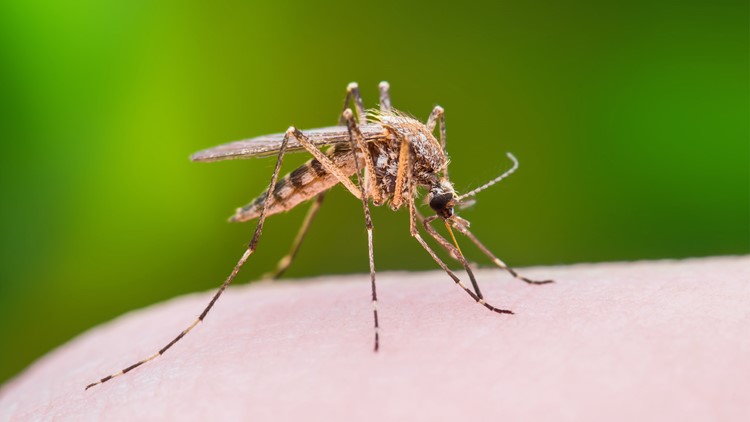COLUMBIA, S.C. — The weather is getting warmer, so most South Carolinians know what that means -- mosquito season is right around the corner. With those pesky biters comes the possibility of the spread of West Nile virus in the state.
West Nile virus (WNV) is transmitted after mosquitoes become infected after feeding on the blood of infected birds that carry the virus. After ten days or two weeks, the infected mosquitoes can then transmit WNV to humans and other animals.
South Carolina Department of Health and Environmental Control (DHEC) wants the public to assist in tracking WNV by submitting certain species of dead birds for testing -- specifically crows, blue jays, house finches, house sparrows, and other songbirds -- between mid-March and the end of November.
To submit a freshly dead wild bird:
- make sure the bird shows no signs of physical trauma or decay, no roadkill or other wounds
- always protect yourself, never touch a bird (dead or alive) with your bare hands, use gloves
- place the dead bird in clear plastic bags and keep the bagged bird cool (on ice or in a refrigerator)
- submit the bird, with a completed DHEC Dead Bird Submission Form, within 36 hours of collection, or freeze the bird until you can deliver or ship it to your local DHEC county office. Bagged birds and completed submission forms can be dropped off at local DHEC offices during regular business hours, 8:30 a.m.-5 p.m. Monday-Friday.
- make sure you have noted the physical location of where you found the dead bird on the submission form, including address or directions, or draw a map on the back of the form with street names and distances from nearby intersections.
You can also help control WNV by controlling local mosquito population by removing sources of standing water. Mosquitoes can breed in any site where water stands for five days or more, so:
- tip over water-filled containers
- remove used tires
- pack sand or cement in low places or tree holes
- treat areas with mosquito control products
- applying EPA-registered repellent such as catnip oil, citronella oil, DEET, IR 3535, oil of lemon eucalyptus, picaridin, IR 3535, or 2-undecanone
- wearing protective, light-colored clothing and avoid floral or fruity scented perfumes or products
- avoiding the outdoors when mosquitos are the most active -- dawn, dusk, twilight and night or shady areas during the day
For more information, including locating a local DHEC office for submitting deceased birds, visit scdhec.gov/birdtesting or contact the Vector-Borne Diseases Laboratory at 803-896-3802 or vector@dhec.sc.gov.



